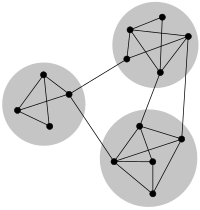
An automatically connected graph representation based on B-splines for structural topology optimization
Sign Up to like & getrecommendations! Published in 2018 at "Structural and Multidisciplinary Optimization"
DOI: 10.1007/s00158-018-2170-5
Abstract: This paper introduces an automatically connected graph representation for structural topology optimization. Structural members of optimal topologies are constructed based on a graph whose each edge is represented by a B-spline curve with varying thickness.… read more here.
Keywords: structural topology; automatically connected; graph representation; topology ... See more keywords

Exploiting the semantic graph for the representation and retrieval of medical documents
Sign Up to like & getrecommendations! Published in 2018 at "Computers in biology and medicine"
DOI: 10.1016/j.compbiomed.2018.08.009
Abstract: OBJECTIVE The objective of this study was to propose a graph-based semantic search approach by addressing the inherent complexity and ambiguity of medical terminology in queries and clinical text for enhanced medical information retrieval. METHODS… read more here.
Keywords: exploiting semantic; retrieval; semantic graph; graph representation ... See more keywords

Self-supervised Graph Representation Learning via Bootstrapping
Sign Up to like & getrecommendations! Published in 2021 at "Neurocomputing"
DOI: 10.1016/j.neucom.2021.03.123
Abstract: Graph neural networks~(GNNs) apply deep learning techniques to graph-structured data and have achieved promising performance in graph representation learning. However, existing GNNs rely heavily on enough labels or well-designed negative samples. To address these issues,… read more here.
Keywords: self supervised; supervised graph; representation learning; graph ... See more keywords

A graph representation of molecular ensembles for polymer property prediction
Sign Up to like & getrecommendations! Published in 2022 at "Chemical Science"
DOI: 10.1039/d2sc02839e
Abstract: Synthetic polymers are versatile and widely used materials. Similar to small organic molecules, a large chemical space of such materials is hypothetically accessible. Computational property prediction and virtual screening can accelerate polymer design by prioritizing… read more here.
Keywords: molecular ensembles; property prediction; representation molecular; graph representation ... See more keywords

GraphCDA: a hybrid graph representation learning framework based on GCN and GAT for predicting disease-associated circRNAs
Sign Up to like & getrecommendations! Published in 2022 at "Briefings in bioinformatics"
DOI: 10.1093/bib/bbac379
Abstract: MOTIVATION CircularRNA (circRNA) is a class of noncoding RNA with high conservation and stability, which is considered as an important disease biomarker and drug target. Accumulating pieces of evidence have indicated that circRNA plays a… read more here.
Keywords: graphcda; representation learning; disease; graph representation ... See more keywords

Personalized Scientific Paper Recommendation Based on Heterogeneous Graph Representation
Sign Up to like & getrecommendations! Published in 2019 at "IEEE Access"
DOI: 10.1109/access.2019.2923293
Abstract: The accelerating rate of scientific publications makes it extremely difficult for researchers to find out the relevant papers and related works. Recommender systems that aim at solving the information overload problem have attracted lots of… read more here.
Keywords: paper recommendation; paper; graph representation; heterogeneous graph ... See more keywords

Motif-Aware Adversarial Graph Representation Learning
Sign Up to like & getrecommendations! Published in 2022 at "IEEE Access"
DOI: 10.1109/access.2022.3144233
Abstract: Graph representation learning has been extensively studied in recent years. It has been proven effective in network analysis and mining tasks such as node classification and link prediction. Learning method based on neural network has… read more here.
Keywords: connectivity; structure; graph; graph representation ... See more keywords

Siamese Network Based Multi-Scale Self-Supervised Heterogeneous Graph Representation Learning
Sign Up to like & getrecommendations! Published in 2022 at "IEEE Access"
DOI: 10.1109/access.2022.3187088
Abstract: Owing to label-free modeling of complex heterogeneity, self-supervised heterogeneous graph representation learning (SS-HGRL) has been widely studied in recent years. The goal of SS-HGRL is to design an unsupervised learning framework to represent complicated heterogeneous… read more here.
Keywords: heterogeneous graph; representation learning; supervised heterogeneous; self supervised ... See more keywords

Predicting MiRNA-disease Associations by Graph Representation Learning Based on Jumping Knowledge Networks.
Sign Up to like & getrecommendations! Published in 2022 at "IEEE/ACM transactions on computational biology and bioinformatics"
DOI: 10.1109/tcbb.2022.3196394
Abstract: Growing studies have shown that miRNAs are inextricably linked with many human diseases, and a great deal of effort has been spent on identifying their potential associations. Compared with traditional experimental methods, computational approaches have… read more here.
Keywords: representation learning; disease; disease associations; graph representation ... See more keywords

All-optical graph representation learning using integrated diffractive photonic computing units
Sign Up to like & getrecommendations! Published in 2022 at "Science Advances"
DOI: 10.1126/sciadv.abn7630
Abstract: Photonic neural networks perform brain-inspired computations using photons instead of electrons to achieve substantially improved computing performance. However, existing architectures can only handle data with regular structures but fail to generalize to graph-structured data beyond… read more here.
Keywords: photonic computing; representation learning; graph; diffractive photonic ... See more keywords

Hierarchical Graph Representation of Pharmacophore Models
Sign Up to like & getrecommendations! Published in 2020 at "Frontiers in Molecular Biosciences"
DOI: 10.3389/fmolb.2020.599059
Abstract: For the investigation of protein-ligand interaction patterns, the current accessibility of a wide variety of sampling methods allows quick access to large-scale data. The main example is the intensive use of molecular dynamics simulations applied… read more here.
Keywords: representation pharmacophore; graph representation; hierarchical graph; pharmacophore models ... See more keywords